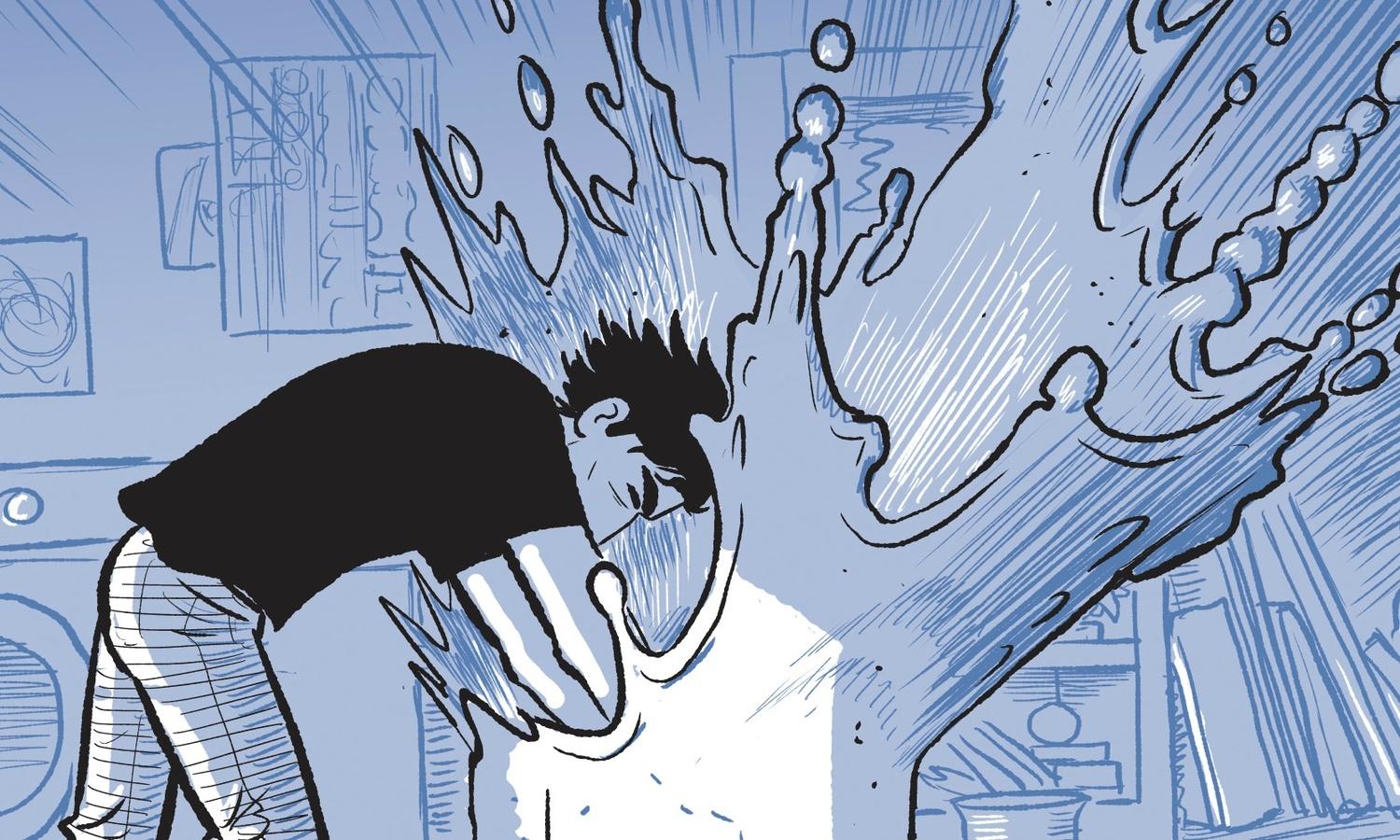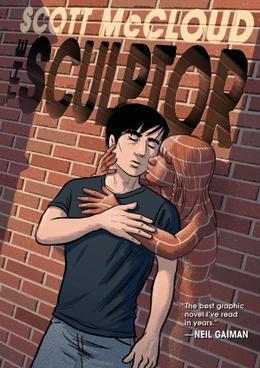“The Sculptor”: An Artist Makes a Deal with the Devil
What will your legacy be? How will you be remembered? And for how long?
Those are the questions that obsess the title character in Scott McCloud‘s new graphic novel The Sculptor. He’s young, ambitious, and broke; after a jolt of early success, he can’t get a gallery to show his work. Then he’s presented with an offer he can’t refuse: he’ll have the superpower to instantly shape any material, of any size. The catch? He’ll die in 200 days. “I think we’re all, forever, making that deal,” McCloud tells Kurt Andersen. “We’re all trading our minutes for some sense of lasting accomplishment.”
See some of Scott McCloud’s illustrations fromThe Sculptorbelow.
With The Sculptor,McCloud could be making his own bid for lasting accomplishment. Hestarted his career at DC Comics and went on to write for several small indies. But McCloud is best known for his seminal books outlining a theory of comics: Understanding Comics(1993),Reinventing Comics(2000), and Making Comics(2006). After decades of writing about method and practice, “I had to do something in fiction,” McCloud says. “It bugged me that I hadn’t done anything that I really liked. If I had been talking about comics all this time and never got around to making a big one, it seemed like a bit of a waste.”
For The Sculptor, McCloud pulled characters and experiences from his own life. The artist’s love interest, free-spirited Meg, struggles with depression — much like McCloud’s wife. But Meg has also been criticized as a “manic pixie dream girl” of movie stereotype. “There was no escaping it, because to some extent I married a trope,” McCloud admits. “I see the use of things like archetypes as kind of on a continuum, somewhere between Alice Munro and Little Red Riding Hood. And why is it that this particular archetype was kind of marked for destruction as soon as we named her, whereas archetypes associated with genres that are usually consumed by boys and men kind of get a pass?”
What would Scott McCloud the theorist and critic of the comics medium think of The Sculptor, Scott McCloud’s magnum opus? “I would think, ‘Pretty good job,’ but I’m easy to please,” he says. “I’m not a real harsh critic. Anything that pushes the envelope, in any direction, I usually kind of like.”
Our coverage reaches millions each week, but only a small fraction of listeners contribute to sustain our program. We still need 224 more people to donate $100 or $10/monthly to unlock our $67,000 match. Will you help us get there today?

